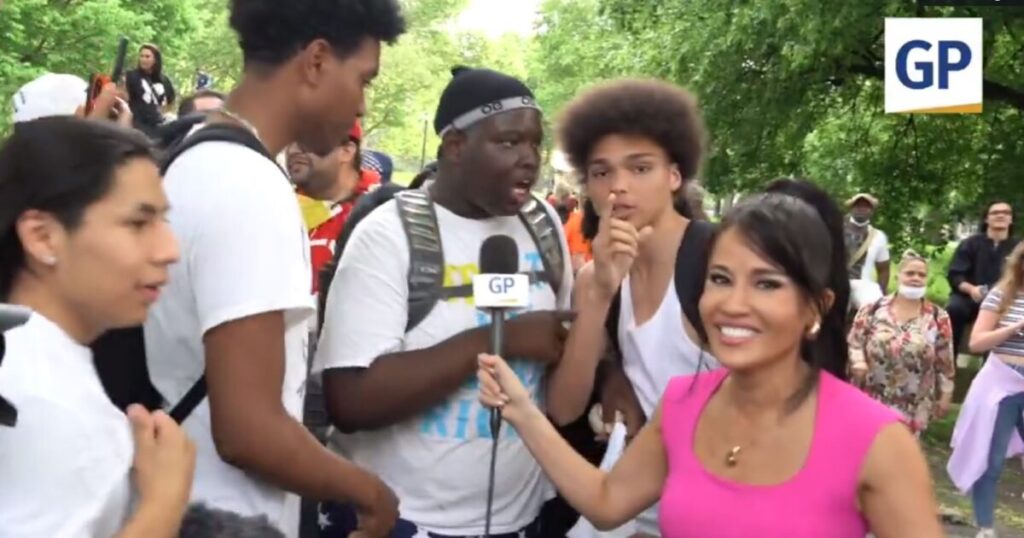The recent BIGDATAPOLL reveals a significant shift in the political landscape for Black men in America, indicating that at least 28.2% plan to vote for President Donald Trump over Democratic candidate Kamala Harris. This polling suggests that Harris’s support among Black men stands at only 63.9%, representing a troubling trend for the Democratic Party. Historically, the Democratic Party has been seen as the primary ally of Black voters, but these new numbers reflect a potential fracture in this longstanding relationship. The once firm grip Democrats held over the Black voting block appears to be loosening, with many Black Americans becoming increasingly critical of the party’s track record over the past six decades.
Evidence of President Trump’s appeal among Black voters becomes even stronger when considering recent New York Times polling, which indicates a marked decrease in the Democratic margin within this demographic. Trump, previously viewed as an unlikely candidate to win any significant Black support, is reportedly achieving at least 15% of the Black vote—a statistic that could very well be understated. The findings underscore a growing sentiment of discontent among Black voters who feel abandoned by the policies and promises of the Democratic Party, which they argue have done little to alleviate the poverty and crime that has plagued their communities.
Moreover, CNN’s Harry Enten presents a concerning analysis for the Harris-Walz campaign, emphasizing that Kamala Harris is struggling to galvanize support among younger Black men. During a breakdown of the voting trends from past elections, Enten highlights a dramatic decline in support for Democrats among this crucial demographic. The numbers reveal that while Barack Obama commanded significant support in 2012, the margins have decreased sharply in subsequent elections. With Harris currently polling at only a 41% lead in this category, it is evident that more younger Black men are gravitating towards the Republican platform, marking a concerning trend for Democrats who have traditionally relied on this voter base.
The data points to a larger trend of disenchantment among Black voters, particularly the youth, who are beginning to view Trump and the GOP more favorably. Amid a backdrop of annual polling and commentary from influential figures like Barack Obama, it has become increasingly clear to many that Harris specifically may not resonate as effectively with the Black electorate. Obama himself noted the lack of enthusiasm among Black voters for Harris, a sentiment echoed by celebrities like Oprah Winfrey, who have observed shifts in support among everyday voters. This disinterest in Harris’s candidacy further complicates the Democratic Party’s strategy for the upcoming election, as they face the unprecedented challenge of retaining their core voter base.
As this substantial shift in Black voter dynamics unfolds, the implications for the Democratic Party could be dire. Analysts point out that if Democrats experience a 25% drop in Black voter support, they would likely lose critical swing states such as Virginia, Florida, Ohio, and North Carolina, leading to disastrous consequences for their electoral prospects. The GOP’s ability to capture this significant share of Black voters could not only shift the electoral map but potentially result in a landslide victory for Trump, fundamentally altering the perception of Republican viability within the Black community.
The evolving political sentiments among Black voters present a unique opportunity for the Republican Party as it seeks to deepen its engagement with a demographic that has historically voted Democrat. Events like Trump’s Bronx rally reflect this changing landscape, as Black voters express their support for Trump amidst the prevailing dissatisfaction with Harris and the Democratic Party. As the 2024 election approaches, the strategies and outreach efforts of both parties will be pivotal in determining the political allegiance of Black voters. Ultimately, whether the Democratic Party can recapture the loyalty of its traditional supporters remains an open and pressing question that will influence the outcome of the upcoming election.

